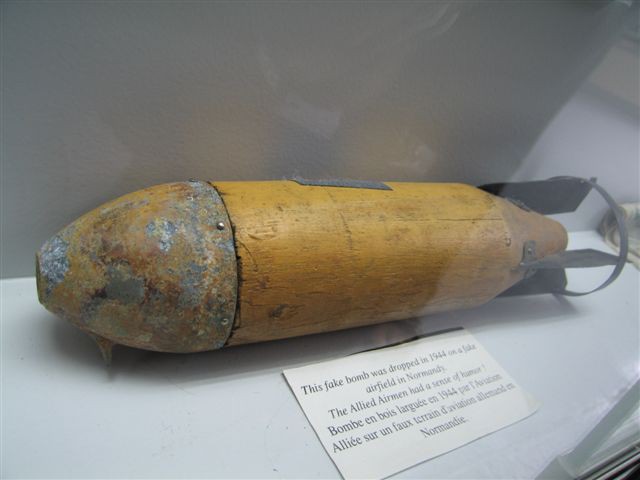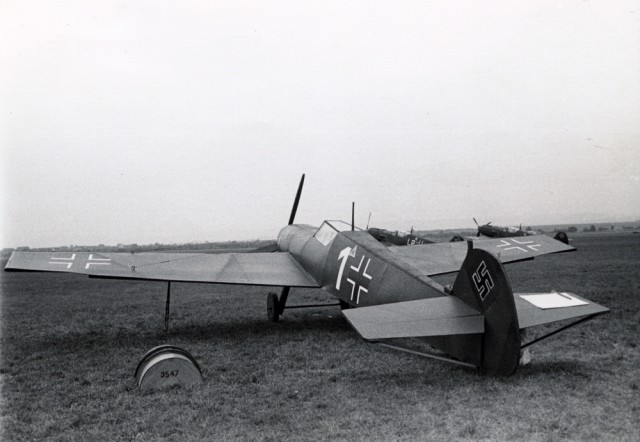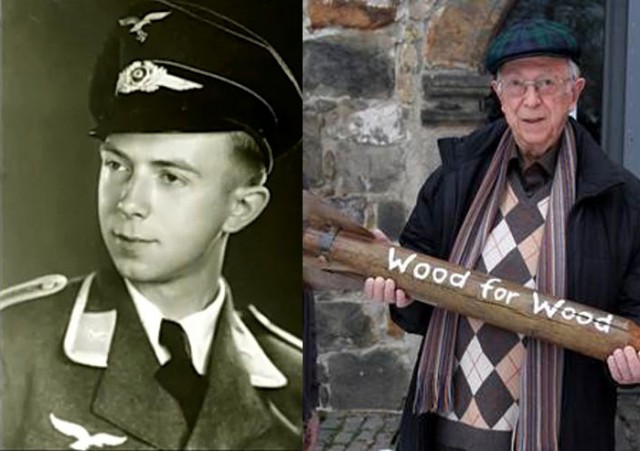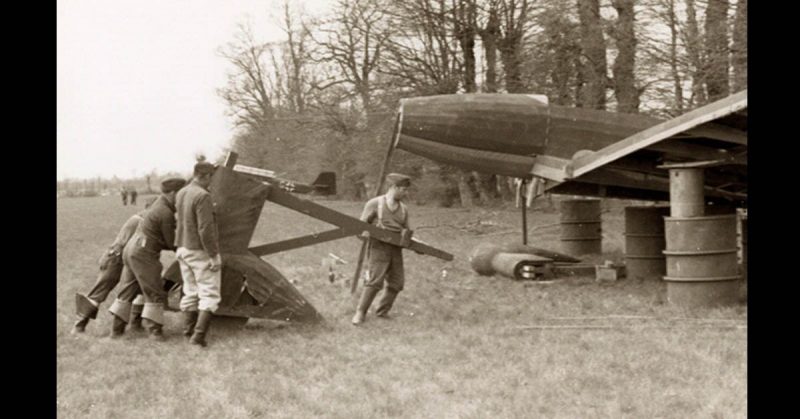This story has been told in many ways, where locations of where the airfield was and how it was bombed being different but the gist is this:
An enemy decoy airfield, built in occupied Holland, let to a tale that has been told and retold every since by veteran Allied pilots. The German “airfield,” was constructed with meticulous care, made almost entirely of wood. There were wooden hangars, oil tanks, gun emplacements, trucks, and aircraft.
The Germans took so long in building their wooden decoy that Allied photo experts had more than enough time to observe and report it. The day finally came when the decoy was finished, down to the last wooden plank. And early the following morning a lone RAF plane crossed the Channel, came in low, circled the field once, and dropped a large wooden bomb.
Could this story be true? The use of decoy airfields and other make-believe facilities during the Second World War was no legend at all.
Both sides tried to fool each other and there is no doubt that the Germans built wooden airplanes and sometimes complete airfields to keep the allies away from the actual airfields. They also painted bomb damage on existing airfields to make them look unusable and spare them from further bombing.

Operation Fortitude was the Allied deception operation to make the Germans believe that the invasion would take place at the Pas the Calais and not at Normandy. An entire fake army group under George S Patton Jr was set up, complete with fake airplanes, tanks and cannons.

Still, there are a lot of aspects of the story that make it seem more like an urban myth than reality:
Just as there is strategic value in fooling your enemy, there is also strategic value in allowing your enemy to continue believing he has you fooled even after you’ve caught onto his plans. That’s a considerable advantage to throw away merely for the sake of a minor “up yours” stunt.
The proposed scheme (particularly the version quoted at the top of this page, which states the use of a single plane and bomb) is fraught with possibilities for failure that could easily have rendered it pointless.
What if the Germans didn’t see the “bomb” fall from the plane? What if they watched it fall but didn’t know what it was, and it broke into unrecognizable pieces when it hit the ground? What if it landed off-target and the Germans never found it? (And why not send someone along to film the event, thereby greatly increasing its propagandic value?)
The Germans used plenty of real anti-aircraft guns around their fake airfields, if the Allies were to bomb one of their fake airfields, they would be received with real anti-aircraft fire. If there were no anti-aircraft guns around a fake airfield the Allies would quickly surmise something fishy was going on.
Would you risk one or more aircrews to drop a wooden bomb on an airfield just for laughs? Giving the fact that the life expectancy as a (bomber) pilot wasn’t that high, it is highly doubtful that any could be found that would risk real Ack Ack to drop a wooden bomb.
Wood For Wood

However a book has been written on the subject, French author Pierre-Antoine Courable and his Belgian cohort Jean Dewaerheid have brought the force of serious research to the seven-decade-old legend of Allied bomber crews hitting fake German airfields with fake British bombs.

According to Vintage Wings of Canada In 2009, Courable published his book which, for this writer, finally proves with absolutely thorough research and the first-hand accounts witnesses that everyone said never existed that the wooden bombs for wooden targets skit actually happened.. and many times. A year later, the long-sought star witness for Courable’s thesis, a Luftwaffe pilot by the name of Oberstleutnant Werner Thiel came forward and was videotaped corroborating the story of the Allied air force’s joke.
